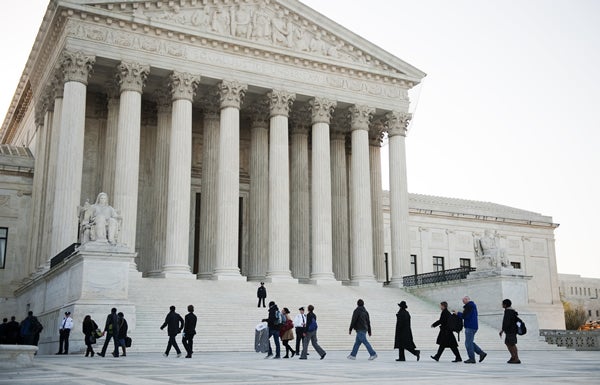It was no surprise today that the most liberal (and most-overturned) federal appeals court in the nation, the Ninth Circuit, refused a request for a rehearing by the entire court of the decision by a three-judge panel that found California’s Proposition 8 unconstitutional. This means that the proponents of Proposition 8, a state constitutional amendment that overturned the California Supreme Court’s recognition of a right to homosexual marriage, have 90 days to file a petition seeking review by the Supreme Court.
There was no comment from the Ninth Circuit’s majority in denying en banc review. However, there were some stinging comments in a dissent by Judge Diarmuid O’Scannlain that was joined by two other Ninth Circuit judges, Jay Bybee and Carlos Bea. O’Scannlain pointed out that President Barack Obama said although he now supports homosexual marriage, the Constitution left this matter to the states, and Obama said that “one of the things that [he]’d like to see is—that [the] conversation continue in a respectful way.” But the majority’s denial meant that the Ninth Circuit “has silenced any such respectful conversation,” according to O’Scannlain.
O’Scannlain was scathing in his criticism of the “gross misapplication of Romer v. Evans” by Judge Stephen Reinhardt, who wrote the Ninth Circuit panel decision throwing out Proposition 8. O’Scannlain said that the Ninth Circuit has “now declared that animus [i.e., ill will] must have been the only conceivable motivation for a sovereign State to have remained committed to a definition of marriage that has existed for millennia.”
Even worse, according to O’Scannlain, the Ninth Circuit has “overruled the will of seven million California Proposition 8 voters based on a reading of Romer that would be unrecognizable to the Justices who joined it, to those who dissented from it, and to the judges from sister circuits who have since interpreted it.”
Reinhardt issued a concurrence in the denial claiming that he had issued only a narrow decision regarding Proposition 8. But Reinhardt has a long history of judicial opinions in which he flagrantly and brazenly ignores the law and prior precedent and imposes his own liberal ideology on public policy. In fact, Reinhardt ruled that California voters could not amend the state constitution to change state law and take away the marriage right of homosexual partners, ignoring the fact that the “right”—supposedly in the state constitution—had been created out of whole cloth by the state supreme court.
With the dubious decision last week by the First Circuit Court of Appeals finding part of the Defense of Marriage Act (DOMA) unconstitutional, it is now almost certain that the Supreme Court will take up the issue of same-sex marriage. The Supreme Court almost always takes cases in which a federal statute is found unconstitutional. In the First Circuit decision, the court tossed out the provision of DOMA that defined the term “marriage” for purposes of federal law as meaning only opposite-sex unions. It did so despite a binding 1972 decision by the Supreme Court that rejected an equal protection challenge to a state’s definition of marriage as limited to opposite-sex unions.
A petition for certiorari filed within the next 90 days in both the Ninth and First Circuit cases will put the cases before the Supreme Court for the upcoming 2012–2013 term that starts in October.
These two cases illustrate the problems caused by activist judges who ignore the rule of law and the Constitution. They also vividly show the critical importance of the power of the President to pick the judges who sit on our federal courts, particularly the Supreme Court, which will likely rule on this crucial question.
